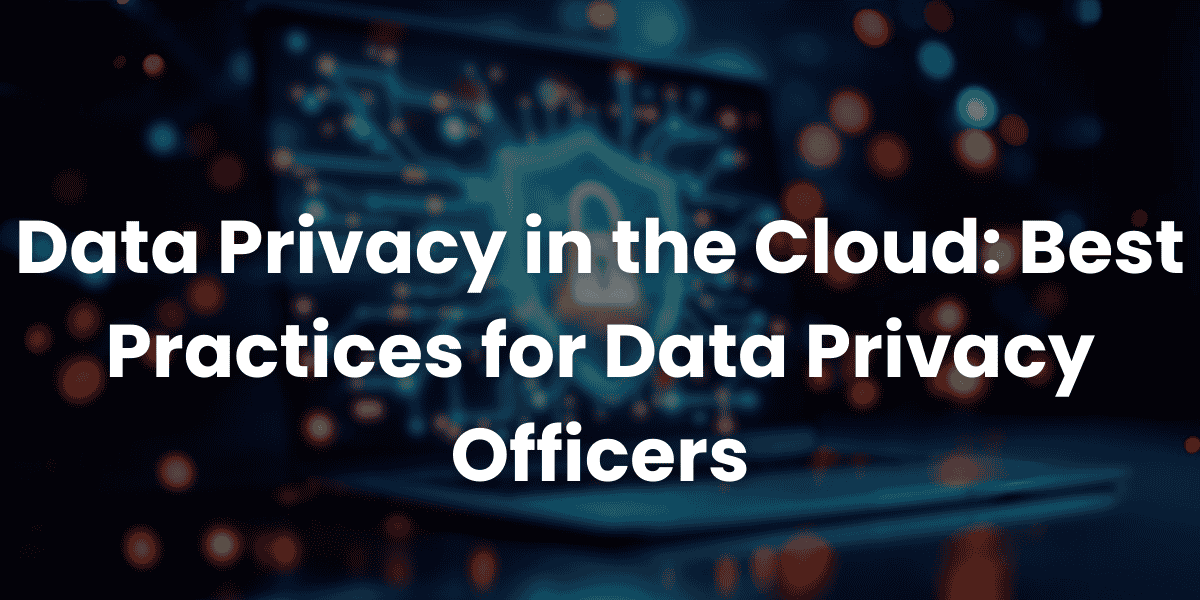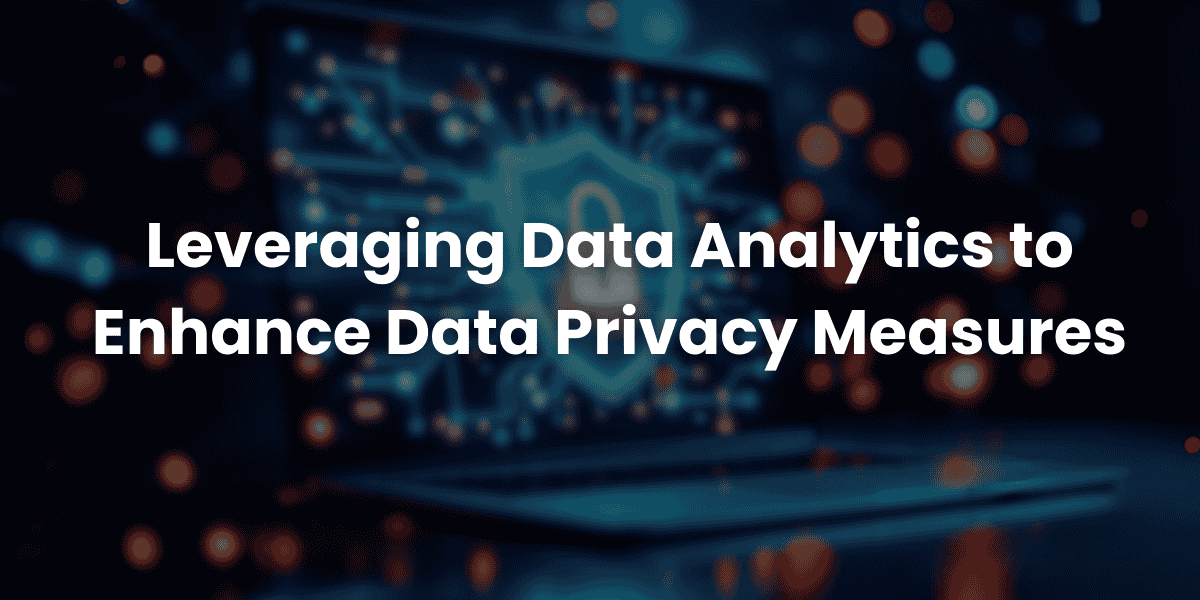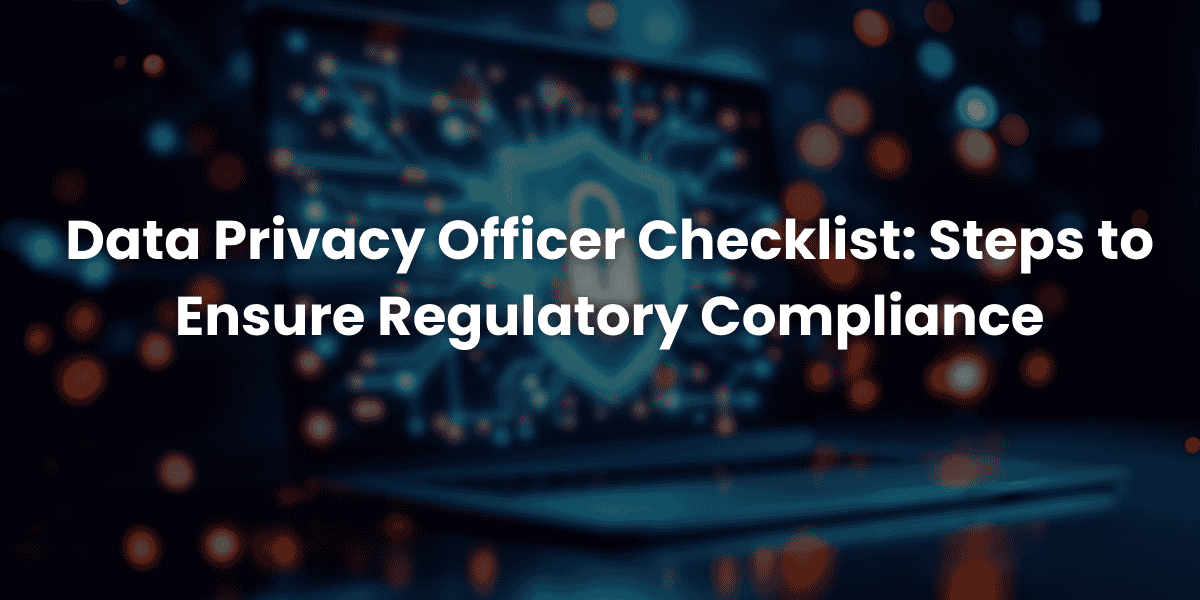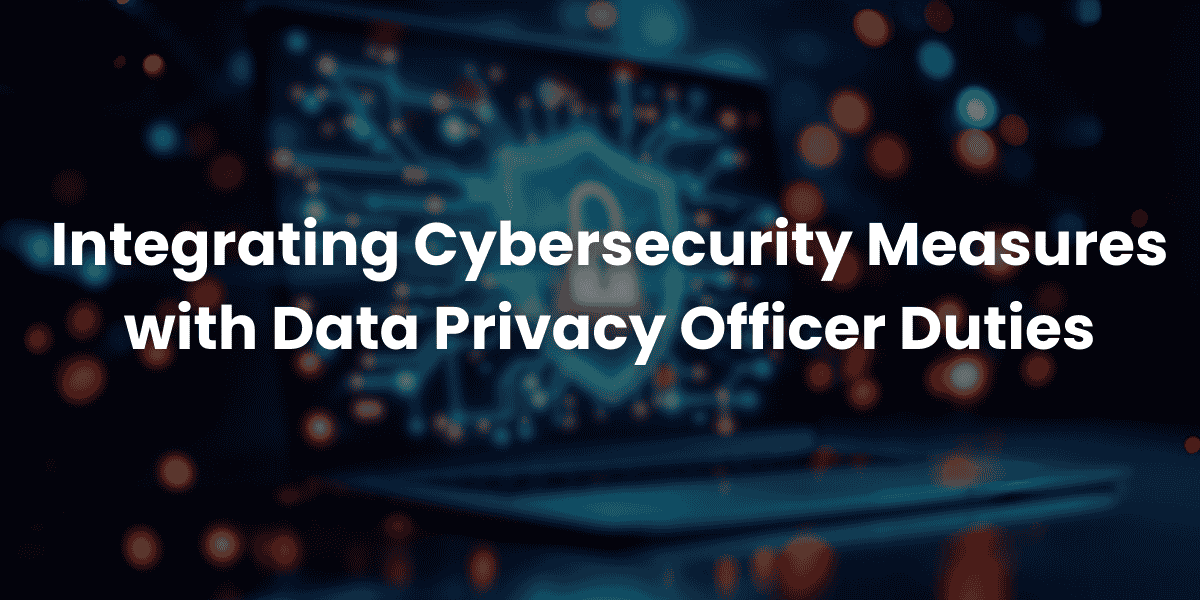In today’s interconnected digital world, the roles of cybersecurity and data privacy are increasingly intertwined. A Data Privacy Officer must collaborate closely with cybersecurity teams to ensure that sensitive information is protected from both internal and external threats. By integrating cybersecurity measures into their duties, a Data Privacy Officer can enhance data protection and compliance efforts.
1. Aligning Cybersecurity and Privacy Goals
A Data Privacy Officer ensures that cybersecurity measures align with the organization’s privacy goals. This includes implementing encryption, access controls, and threat detection systems that protect personal data while meeting regulatory requirements. By fostering collaboration between privacy and security teams, the Data Privacy Officer creates a unified approach to safeguarding sensitive information.
2. Conducting Joint Risk Assessments
Risk assessments are a shared responsibility between cybersecurity teams and a Data Privacy Officer. Together, they evaluate potential vulnerabilities in data handling practices and IT infrastructure. These joint assessments help identify risks such as unauthorized access, data breaches, and system vulnerabilities, enabling the Data Privacy Officer to implement targeted solutions.
3. Implementing Strong Access Controls
A Data Privacy Officer works with cybersecurity teams to enforce strict access controls. This includes defining user roles, implementing multi-factor authentication, and monitoring access logs. By ensuring that only authorized personnel can access sensitive data, the Data Privacy Officer minimizes the risk of insider threats and cyberattacks.
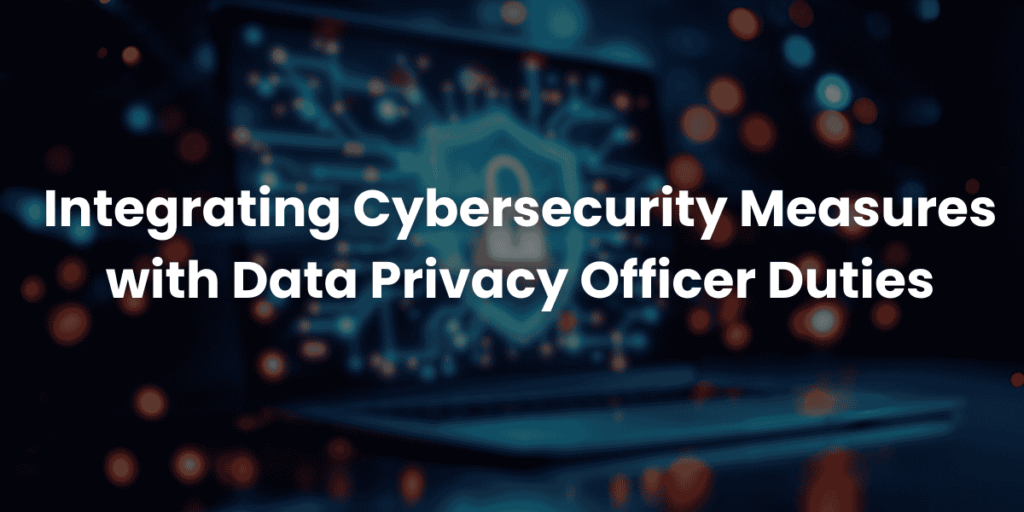
4. Developing Incident Response Plans
A Data Privacy Officer collaborates with cybersecurity experts to develop comprehensive incident response plans. These plans outline steps for detecting, containing, and mitigating data breaches. By integrating cybersecurity tools and protocols into the response strategy, the Data Privacy Officer ensures a swift and effective response to incidents.
5. Leveraging Encryption and Anonymization
Encryption and anonymization are critical tools for protecting personal data. A Data Privacy Officer ensures that these technologies are implemented across the organization’s systems and processes. By working with cybersecurity teams, the Data Privacy Officer ensures that sensitive information remains secure even if it falls into the wrong hands.
6. Monitoring for Emerging Threats
Cybersecurity threats are constantly evolving, and a Data Privacy Officer must stay informed about emerging risks. By leveraging threat intelligence tools and collaborating with cybersecurity teams, the Data Privacy Officer ensures that the organization is prepared to address new challenges. Proactive monitoring helps prevent breaches before they occur.
7. Educating Employees on Security Best Practices
A Data Privacy Officer plays a key role in educating employees about cybersecurity best practices. Training programs cover topics such as recognizing phishing attempts, securing devices, and handling sensitive data responsibly. By fostering a culture of security awareness, the Data Privacy Officer reduces the risk of human error leading to breaches.
8. Ensuring Compliance with Security Standards
Many data protection regulations require organizations to adhere to specific cybersecurity standards. A Data Privacy Officer ensures that the organization complies with frameworks such as ISO 27001, NIST, or PCI DSS. By aligning cybersecurity measures with these standards, the Data Privacy Officer strengthens both security and compliance efforts.
9. Collaborating with Third-Party Vendors
Third-party vendors often handle sensitive data on behalf of organizations. A Data Privacy Officer works with cybersecurity teams to assess vendors’ security practices and ensure they meet the organization’s standards. Regular audits and contract reviews help mitigate risks associated with external partners.
10. Building a Culture of Privacy and Security
A Data Privacy Officer fosters a culture where privacy and security are prioritized at all levels of the organization. This involves encouraging employees to take ownership of data protection and promoting collaboration between departments. By integrating cybersecurity measures into daily operations, the Data Privacy Officer ensures that privacy and security become ingrained in the organization’s DNA.
Conclusion: The Synergy Between Cybersecurity and a Data Privacy Officer
Integrating cybersecurity measures with the duties of a Data Privacy Officer is essential for protecting sensitive data in today’s digital landscape. By aligning privacy and security goals, conducting joint risk assessments, and fostering a culture of awareness, a Data Privacy Officer not only ensures compliance but also builds resilience against cyber threats. These efforts safeguard the organization’s reputation, maintain customer trust, and position it for long-term success in an increasingly data-driven world.


